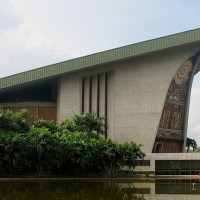Expenditures remained relatively restrained in the lead up to the election. The Government recorded a budget surplus equal to 1.7 per of GDP in 2007 albeit on the back of continued oil and mining revenues and a 6 per cent GDP growth rate. The current government has also brought national debt levels down from a record 72 per cent of GDP in 2002 to approximately 35 per cent of GDP this year.
To try and ensure the government doesn’t fall into the trap of previous decades the Treasurer and his Department are currently developing an updated Medium Term Fiscal Strategy (MTFS 2008-2012) to act in conjunction with the Fiscal Responsibility Act (FRA 2006) to make a number of changes to both the revenue and expenditure priorities of the Government and to place restrictions on the extent of its fiscal austerity. The draft MTFS effectively targets an underlying balance for government expenditure which is exclusive of the amount of mineral revenue deemed to be over and above a normal level. The document proposes that any additional revenue which exceeds this amount be allocated in ways which free up resources into the future rather than commit the government to future spending obligations. This includes approximately 60 per cent of additional mineral revenue being used for public investments and 40 per cent for debt prepayment. Whether or not the Government accepts these specific proposals is uncertain but it is certainly talking and thinking about the right issues.

People are invariably wary of these successes, not least because in the past, commodity booms have led to rapid expansions in government expenditure and on 3 separate occasions a lack of fiscal discipline has brought the country to the brink of bankruptcy.
None of this should also understate the huge development challenges facing the country. A major threat to the ability of economic success to improve living standards in PNG is rising inflation. Unofficial forecasts put inflation at close to 8 per cent this year, but this is most likely an understatement.
The Central Bank has been lacklustre in its response to an overheating economy. Real interest rates remain negative (the 28 day CBB rate is about 5.4 per cent) and it has shown little inclination towards reigning in rapidly growing domestic credit levels. The Bank’s foreign exchange reserves are now also at remarkably high levels. Many people have even been suggesting that the BPNG has actually started behaving like a profit making entity rather than a monetary authority. This is a poor performance from an institution which in the past has prided itself on being the bastion of economic stability in an otherwise volatile country. In the Central Bank’s defence, inflation is being largely driven by rising food and oil prices which are set on world markets and hard to curtail. But without adequate monetary responses these effects are being amplified, particularly as the economy steams ahead.
Another major challenge for PNG is that in spite of the commodity boom and an increasingly development focussed fiscal policy the supply side of the economy has shown minimal response. A couple of resource projects are coming on-line but these were in development prior to the commodity boom. A decline in global demand for these commodities would not only lead to a large scale reduction in foreign exchange earnings but place a disproportionate burden on government revenue. If recurrent expenditures are allowed to grow within the budget this could subsequently lead to another blow out in expenditure levels – as has been learnt by the lessons of the 1990s in particular.
Poor supply side responses necessitate a renewed commitment by the government to address many of the structural constraints on growth present within the economy. These include, high rates of crime, unreliable and expensive services from basic utilities, poor transportation infrastructure limiting market access, low public sector capacity to provide services, unclear and rigid regulation policies, low levels of human capital, and land tenure issues. These issues have meant that both domestic and foreign investment have remained limited outside of the mineral sector and this constitutes the biggest constraint on the recent macroeconomic success leading to more improvements in development outcomes across the country.
Author: Aaron Batten
Source: East Asia Forum: Economics, Politics and Public Policy in East Asia and the Pacific
NOTE:
Aaron Batten is a PhD candidate in Economics the Australian National University. His research areas are foreign aid, the Pacific, development economics and institutions for development. He is currently based at the National Research Institute in Port Moresby.














[…] September, I blogged about PNG’s economic revival, a renaissance driven by surging commodity prices and bolstered by considerable improvements in […]